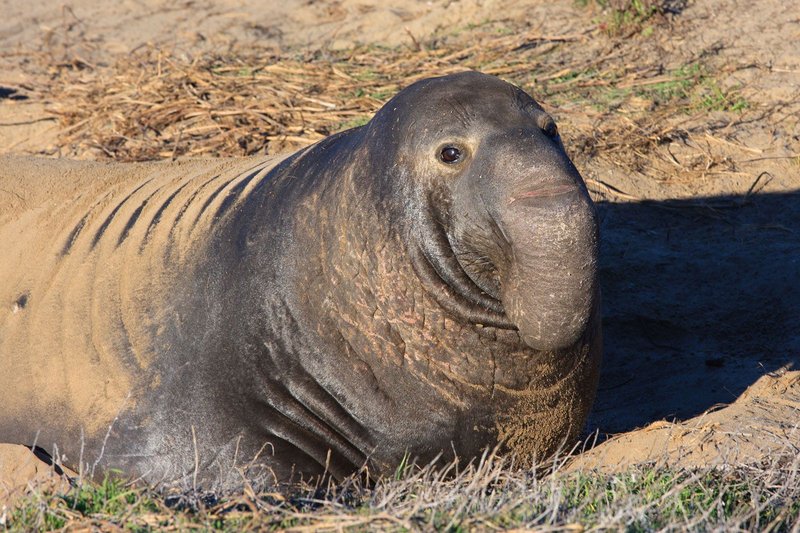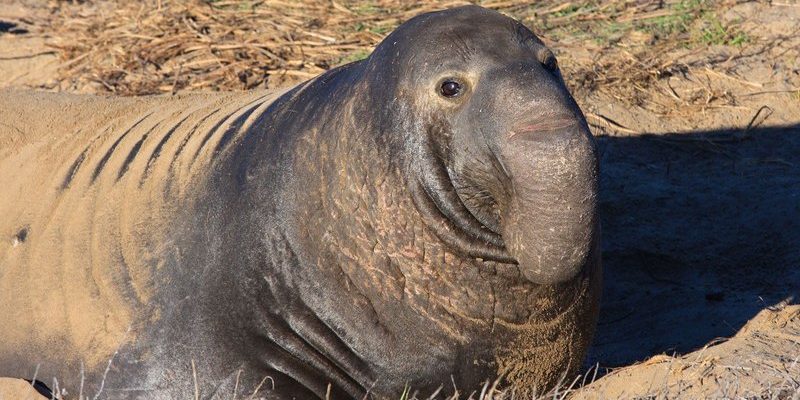
Think of elephant seals as the unsung heroes of the sea. Just like how certain plants in a garden might help the soil stay healthy, elephant seals contribute to the marine environment in ways that might surprise you. From nutrient cycling to influencing predator-prey dynamics, the ripple effects of their presence are profound. So, let’s dive into what makes these marine mammals so important and what they bring to the table in the intricate web of ocean life.
What Are Elephant Seals?
Elephant seals are large marine mammals known for their impressive size and distinctive features. Males can weigh over 4,500 pounds, and their long, trunk-like noses give them their name. There are two species: the Northern Elephant Seal and the Southern Elephant Seal. While they both share some common traits, they have different habitats and behaviors.
Elephant seals are primarily found in the Pacific Ocean, resting on beaches and spending most of their time in the open sea. They’re fantastic divers and can plunge to depths of up to 5,000 feet in search of food like squid and fish. Picture them as underwater acrobats, plunging into the depths and coming back up for air—this is just a taste of their life at sea.
The Role of Elephant Seals in Nutrient Cycling
Here’s the thing: elephant seals are not just lounging around on beach rocks. When they dive deep into the ocean for food, they play a crucial part in “nutrient cycling.” As they eat, they consume various marine species, and when they excrete waste, they release nutrients back into the water. This helps fertilize the ocean, which, in turn, supports the growth of plankton and other tiny organisms at the base of the food chain.
You might think of this process like composting in your garden. Just as compost returns nutrients to the soil, elephant seals contribute to nutrient enrichment in the ocean. This cycle is vital because it ensures the health of marine ecosystems, providing food for small fish, which are then eaten by larger marine animals. Without this contribution, the entire chain could start to wane.
Influencing Predator-Prey Dynamics
Ever thought about how predator and prey interactions shape ecosystems? Elephant seals, due to their large size, inadvertently influence the populations of their predators, such as sharks and orcas. When elephant seals are plentiful, these predators have plenty of food to sustain their own populations.
However, this balance can shift. If elephant seal populations decline due to factors like climate change or hunting, it could lead to increased pressure on prey species that these predators rely on. It’s a classic case of the domino effect. One change can lead to a cascade of impacts throughout the ecosystem. This makes it crucial to maintain healthy elephant seal populations.
Behavioral Insights: Social Structures and Breeding
Elephant seals exhibit fascinating social behaviors, especially during breeding seasons. Males often engage in battles for dominance, showcasing their strength and size. You might see them puffing up their bodies and roaring—a spectacle that can be quite mesmerizing to witness.
During the breeding season, which usually occurs between December and March, these seals gather in large colonies on beaches. This social structure not only provides safety in numbers but also helps with breeding success. The males establish territories, and females give birth to their pups within this colony. The presence of multiple seals also creates a vibrant community where mothers can nurse their young—an example of how social behavior can enhance survival.
Impact of Climate Change on Elephant Seals
Unfortunately, climate change poses significant challenges to elephant seals and their role in the marine ecosystem. Changes in sea temperatures can affect the distribution of their food sources, making it harder for them to find what they need to thrive. For example, if their prey moves to deeper or cooler waters, the seals may struggle to dive to those depths.
Sea-level rise and habitat loss also threaten their breeding grounds. Many elephant seal colonies are located on sandy beaches that are susceptible to erosion. When these areas disappear, it can impact their ability to breed and nurture their pups. It’s like losing a vital piece of real estate in a bustling neighborhood—once it’s gone, it can’t be easily replaced.
Conservation Efforts for Elephant Seals
Awareness and conservation efforts are essential for protecting elephant seals and ensuring their role in marine ecosystems continues. Organizations are working to study seal populations and their habits to better understand their needs, especially in the face of climate change.
You can help, too! Supporting local conservation groups or participating in beach cleanups can make a difference. Even simple actions like spreading awareness about the importance of these animals can contribute to their protection. Every bit counts when it comes to safeguarding their future and, by extension, the health of our oceans.
So, why should you care about elephant seals? Beyond being fascinating creatures, they play a vital role in the ocean’s health and balance. From nutrient cycling to influencing predator-prey dynamics, they support the intricate web that sustains marine life. As we face environmental changes, understanding and protecting these seals becomes even more critical.
Let’s cherish these magnificent mammals and the roles they play in our oceans. The next time you hear about elephant seals, you’ll know they’re not just lounging on the beach; they’re hard at work, supporting an entire ecosystem. Remember, healthy oceans benefit us all, and it starts with understanding the amazing creatures that inhabit them.

